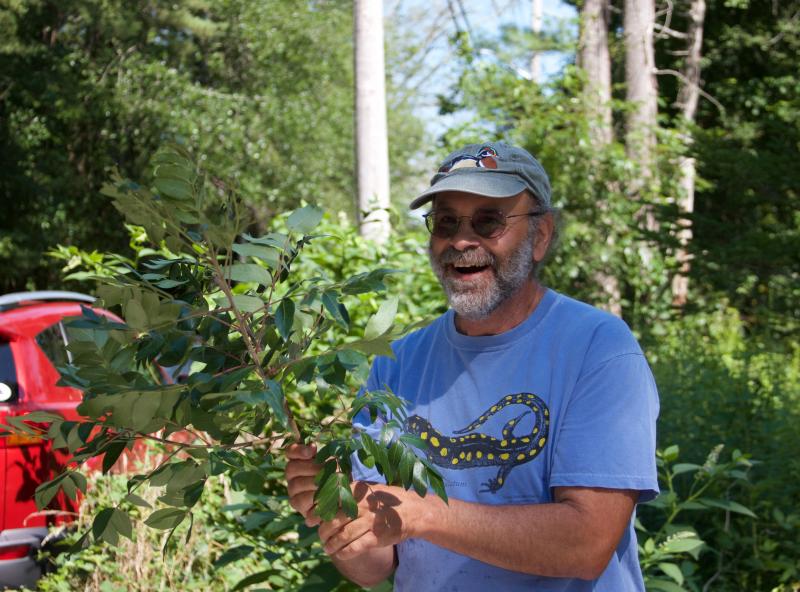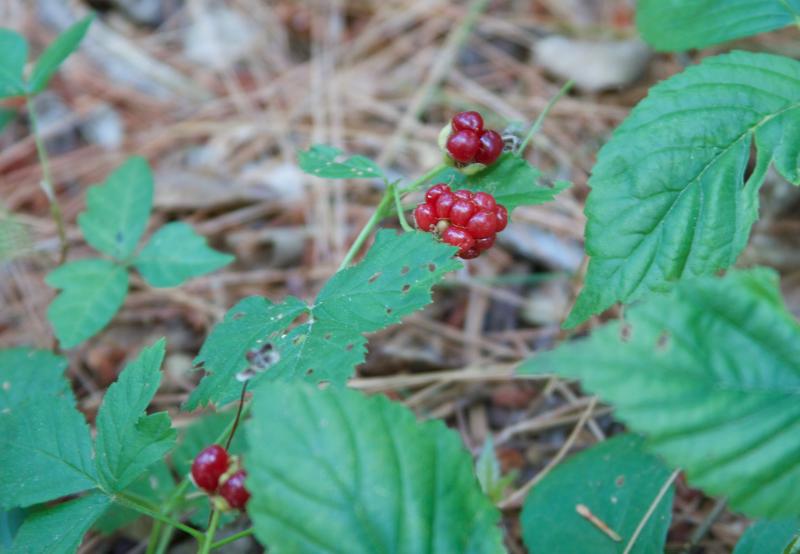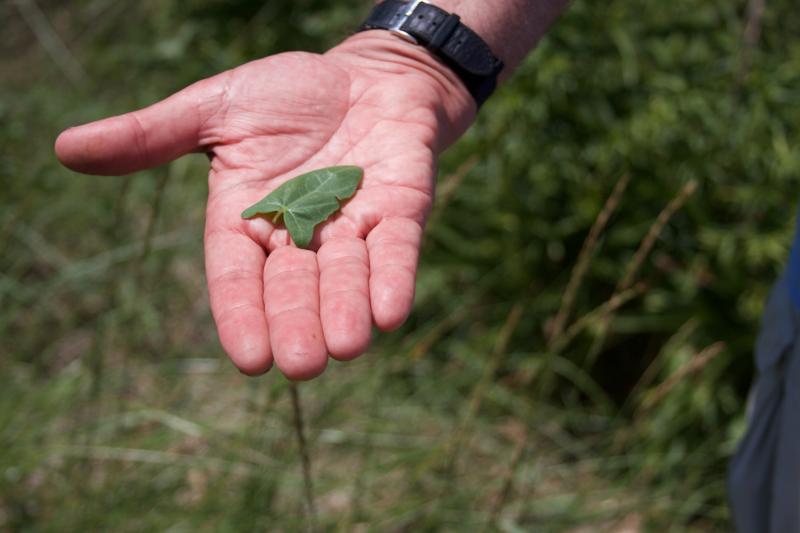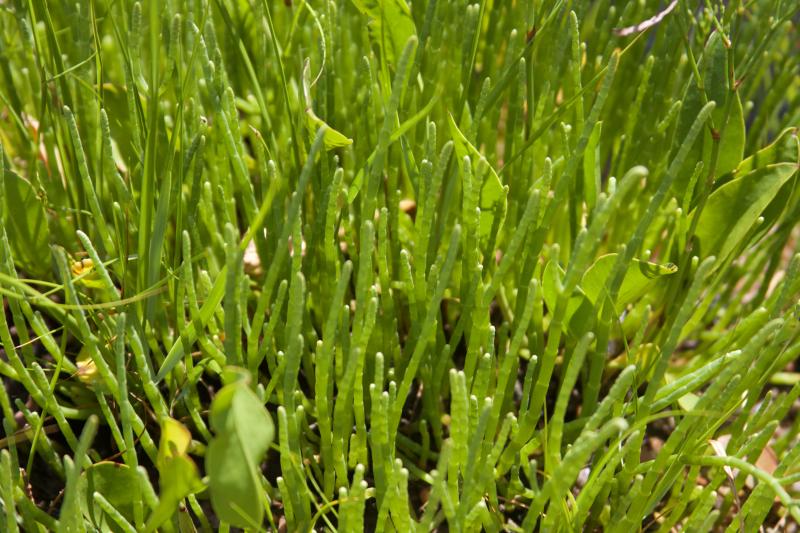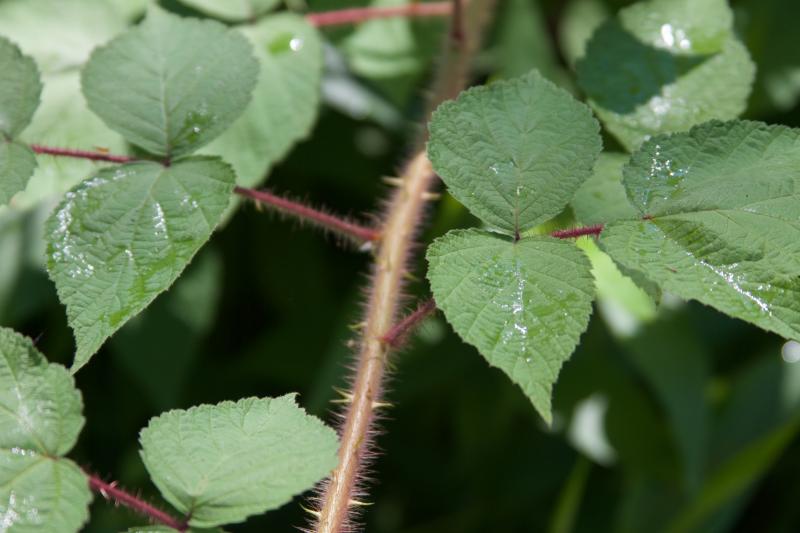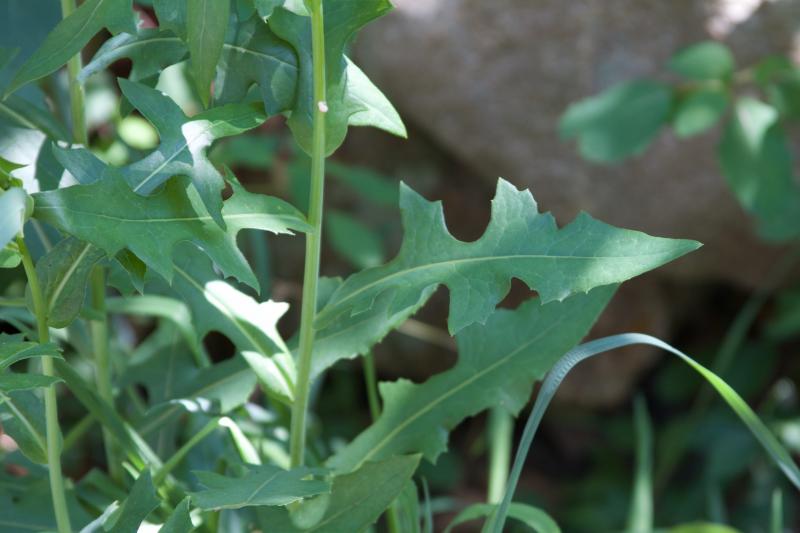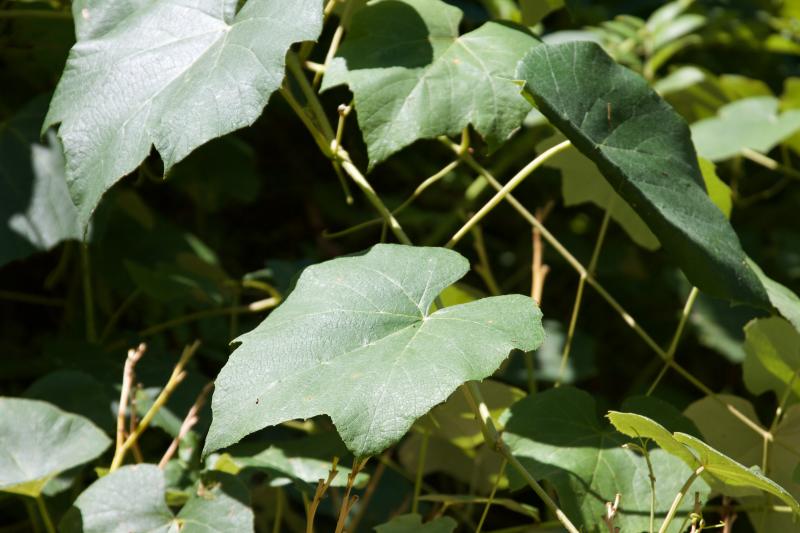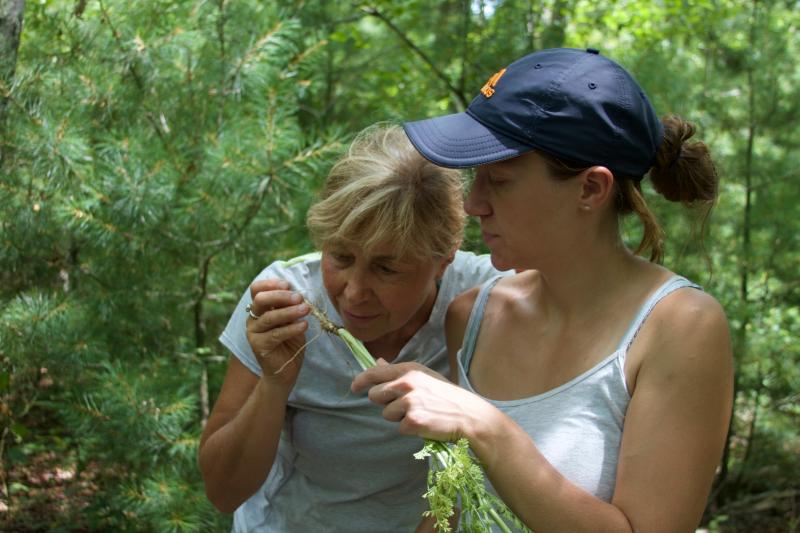Foraging expert introduces residents to wild food
After 42 years of foraging, Russ Cohen can find an edible wild plant just about anywhere, and on Monday, he identified more than a dozen plants at and around the Sippican Lands Trust’s Brainard Marsh property in a “foraging ramble” hosted by the SLT and the Marion Garden Group.
“I love to connect to the outdoors through my taste buds,” said Cohen, an Arlington resident.
Cohen began foraging in high school and started teaching others about eating in the wild while still a teenager.
The author of “Wild Plants I Have Known...and Eaten,” Cohen leads about 40 foraging walks a year in New England and Upstate New York, but he said he still frequents grocery stores and farm stands.
“I have a relatively conventional diet,” he said, supplementing his mainstream meals with 70 to 80 wild plants and mushrooms.
Tasty plants can be found everywhere, and there were plenty to be found on Monday.
Cohen pointed out wineberries, a relative of raspberries and blackberries in the parking area for the property.
“They’re among the prettiest fruits there are,” he said. “They sparkle in the sun.”
Also along the roadside were flowering chicory, a plant with roots that can be dried, ground and brewed and that have a taste similar to coffee.
Cohen also pointed out the “exceedingly common” sassafras, a tree that has three different leaves, all of which can be dried and, once powdered, used to thicken soups and stews. The lemony scented stems and root beer scented roots also make the tree easy to identify with the “scratch and sniff test,” he said.
Moving from the roadside to the trail, Cohen discussed the many ways to eat daylilies, which can be consumed before, during and after they’ve flowered, while the roots can be eaten the same as potatoes.
Along the beach, the group found bayberry leaves that can be used in place of bay leaves. There was also sea rocket, a green in the mustard family with the spiciness of wasabi.
Throughout the talk, Cohen cautioned the group to be mindful of over picking plants, unless they’re non-native, invasives, which choke native species. He also told the fledgling foragers to only harvest what they feel safe eating.
When in doubt, he also said, “don’t eat plants that taste bad. In forty-two years, I’ve yet to encounter any food in this region that is delicious and poisonous.”
Ultimately, Cohen said he enjoys teaching others to forage so they can engage with nature.
“Foraging enriches all the time I spend outdoors.”



